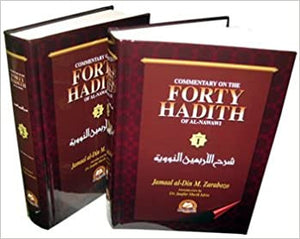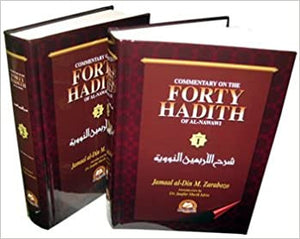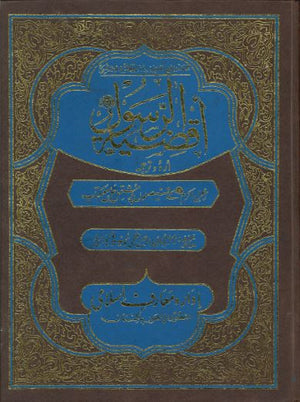





About
The book “The Cases of the Messenger of God, may God’s prayers and peace be upon him,” is considered by the imam, the consulting jurist, “Abu Abdullah Muhammad bin Faraj Al-Qurtubi Al-Maliki, known as Ibn Al-Tala’ (d. Through him, he wanted to alert the judges of his time and after them to the path that they should take. Where he intended to collect the issues that the Messenger of God, may God’s prayers and peace be upon him, judged. Rather, he stated this by saying: “It is not permissible for those who assume judgment from among the people to judge except by what God Almighty commanded in His Book, or by what is proven from the Messenger of God, may God bless him and grant him peace. that he ruled by it, or by what the scholars have unanimously agreed upon, or by evidence from one of the three aspects.” This is his purpose in writing the book, as for its reason; He mentioned at the end that what prompted him to compile it was that he saw Abu Bakr bin Abi Shaybah compiling a book on the issues of the Messenger of God, may God’s prayers and peace be upon him, and he did not mention in it except a few issues, and it is a small book. He collects what he can reach from the insides of the books and literature that he laid his hands on .
* The compiler arranged the material of his book “The Judgments of the Messenger of God, may God’s prayers and peace be upon him,” according to the topics, so he started with the book of punishments, then the book of jihad, then marriage and divorce, until he ended with the book of commandments, then he concluded with the rulings of the Prophet, may God’s prayers and peace be upon him, with different meanings And a summary of his biography, may God’s prayers and peace be upon him, and under each book he collects rulings related to him, heading for each issue by saying: “The ruling of the Messenger of God, may God’s prayers and peace be upon him, in such-and-such.” He mentions the issue, then he mentions the text of the hadith or the evidence for it, while being careful to document it. By mentioning the hadith or jurisprudential source from which it was taken, and if there is a difference between the sources by increasing the benefit or interpretation; He is keen to include it, and sometimes he adds to that an explanation and clarification that clarifies its meaning, as he mentions what is in it of jurisprudential rulings and benefits, and from the accuracy of the compiler, may God have mercy on him, in his book; At the end of the book, he listed the sources from which he took the material for his book .
* And since the book “The Cases of the Messenger of God, may God’s prayers and peace be upon him,” has this advantage, it became famous among the scholars, and they admired it. Ibn Bashkwal said about it when translating its author from his book “The Relationship”: “And he collected a good book on the rulings of the Prophet, peace be upon him.” He mentioned that He read it to his father more than once, and others made it one of the sources of their books, especially from the explanation of Sahih al-Bukhari, such as Badr al-Din al-Ayni in “Umdat al-Qari,” Ibn Hajar in “Fath al-Bari,” and al-Qastalani in “Irshad al-Sari,” and others .
The book “The Cases of the Messenger of God, may God’s prayers and peace be upon him,” is considered by the imam, the consulting jurist, “Abu Abdullah Muhammad bin Faraj Al-Qurtubi Al-Maliki, known as Ibn Al-Tala’ (d. Through him, he wanted to alert the judges of his time and after them to the path that they should take. Where he intended to collect the issues that the Messenger of God, may God’s prayers and peace be upon him, judged. Rather, he stated this by saying: “It is not permissible for those who assume judgment from among the people to judge except by what God Almighty commanded in His Book, or by what is proven from the Messenger of God, may God bless him and grant him peace. that he ruled by it, or by what the scholars have unanimously agreed upon, or by evidence from one of the three aspects.” This is his purpose in writing the book, as for its reason; He mentioned at the end that what prompted him to compile it was that he saw Abu Bakr bin Abi Shaybah compiling a book on the issues of the Messenger of God, may God’s prayers and peace be upon him, and he did not mention in it except a few issues, and it is a small book. He collects what he can reach from the insides of the books and literature that he laid his hands on .
* The compiler arranged the material of his book “The Judgments of the Messenger of God, may God’s prayers and peace be upon him,” according to the topics, so he started with the book of punishments, then the book of jihad, then marriage and divorce, until he ended with the book of commandments, then he concluded with the rulings of the Prophet, may God’s prayers and peace be upon him, with different meanings And a summary of his biography, may God’s prayers and peace be upon him, and under each book he collects rulings related to him, heading for each issue by saying: “The ruling of the Messenger of God, may God’s prayers and peace be upon him, in such-and-such.” He mentions the issue, then he mentions the text of the hadith or the evidence for it, while being careful to document it. By mentioning the hadith or jurisprudential source from which it was taken, and if there is a difference between the sources by increasing the benefit or interpretation; He is keen to include it, and sometimes he adds to that an explanation and clarification that clarifies its meaning, as he mentions what is in it of jurisprudential rulings and benefits, and from the accuracy of the compiler, may God have mercy on him, in his book; At the end of the book, he listed the sources from which he took the material for his book .
* And since the book “The Cases of the Messenger of God, may God’s prayers and peace be upon him,” has this advantage, it became famous among the scholars, and they admired it. Ibn Bashkwal said about it when translating its author from his book “The Relationship”: “And he collected a good book on the rulings of the Prophet, peace be upon him.” He mentioned that He read it to his father more than once, and others made it one of the sources of their books, especially from the explanation of Sahih al-Bukhari, such as Badr al-Din al-Ayni in “Umdat al-Qari,” Ibn Hajar in “Fath al-Bari,” and al-Qastalani in “Irshad al-Sari,” and others .
Aqdhiat Ul Rasool....in Urdu....اقضية الرّسول
- Regular price
- $29.95
- Sale price
- $29.95
- Regular price
-
Couldn't load pickup availability




